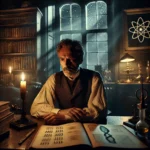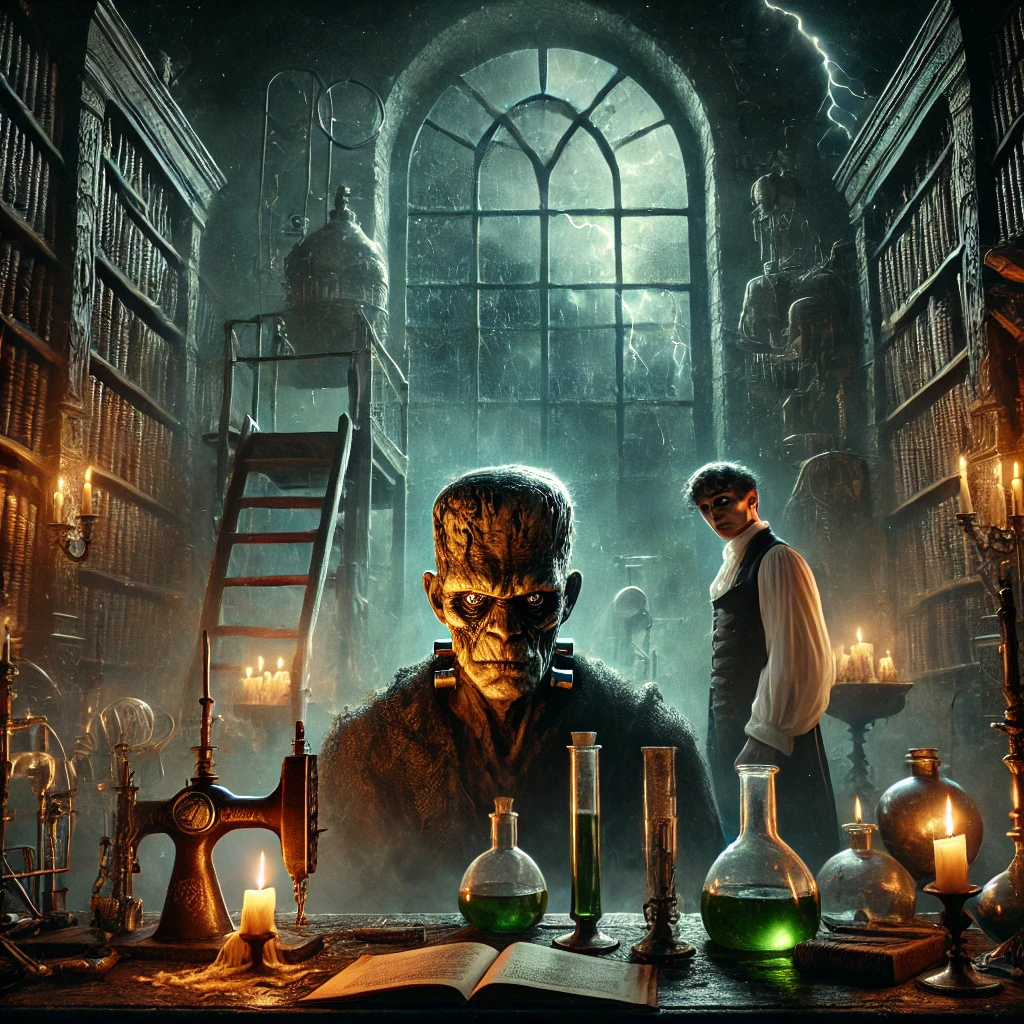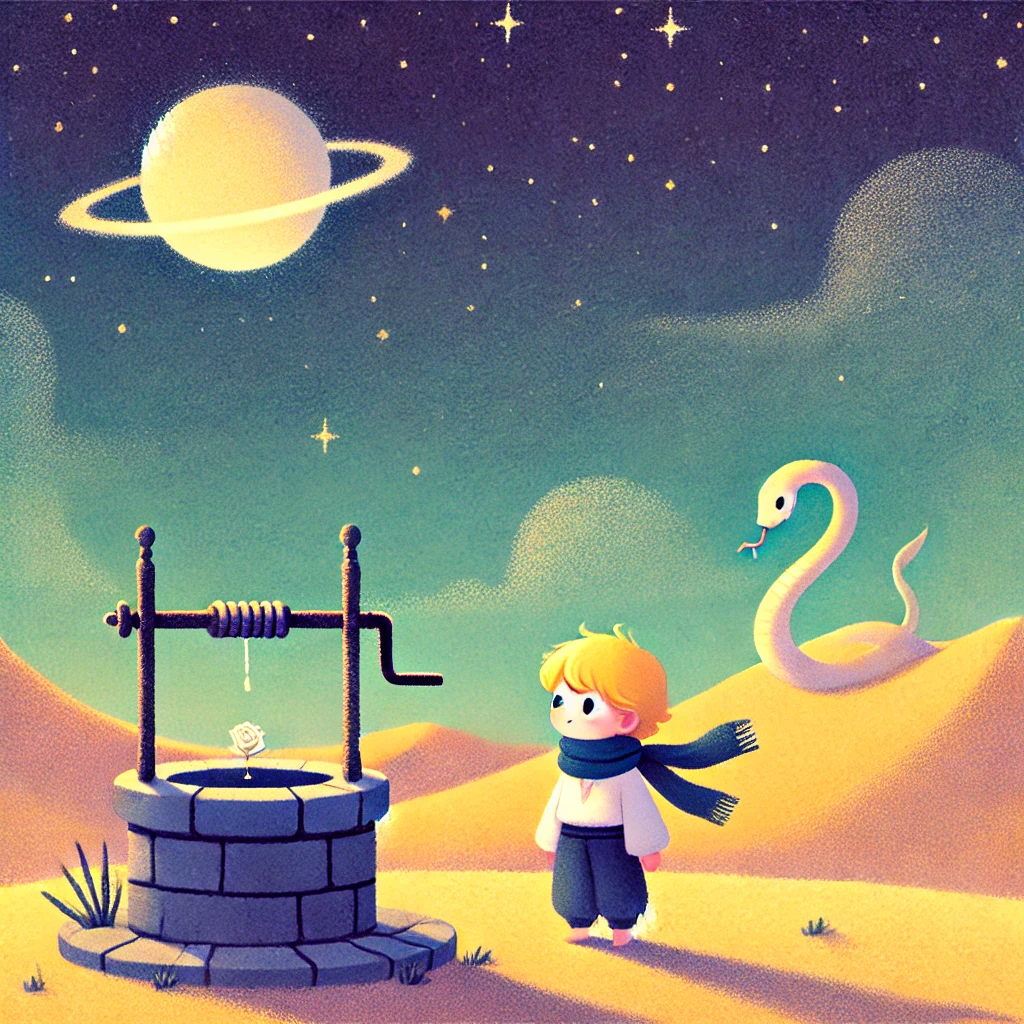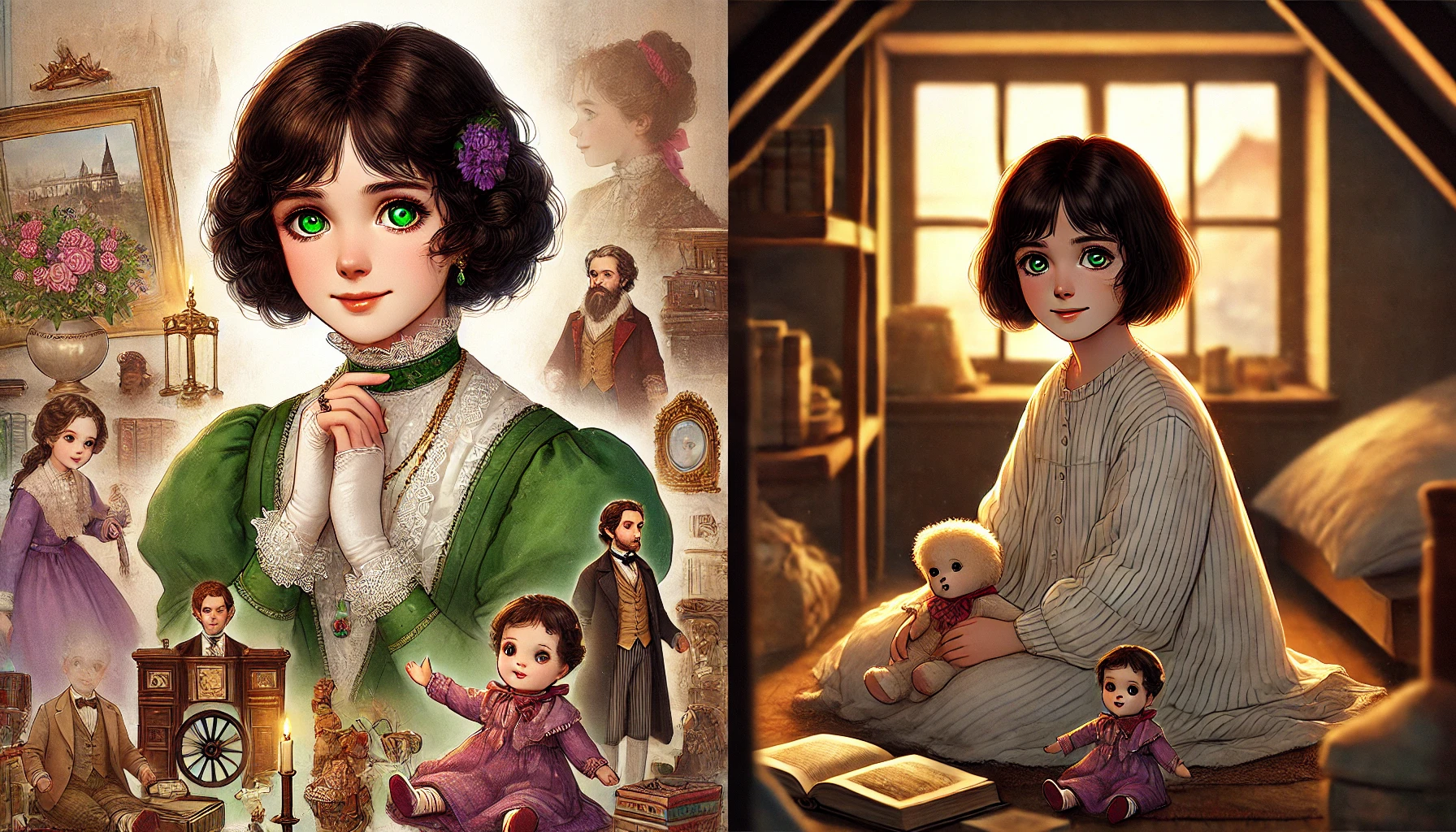“The Story of the Inexperienced Ghost” is a short story written by H. G. Wells and published in 1902. It delves into the supernatural with a blend of humor and irony, characteristic of Wells’ unique storytelling style. The narrative revolves around an unusual encounter with a ghost, delivering a mix of the eerie and the absurd.
Plot Summary
Clayton, a man known for his charm and wit, sat among his friends at the Mermaid Club. It was a cozy evening, the air filled with the scent of cigar smoke and the warmth of camaraderie. Conversations meandered through various topics until Clayton, with a casual air, began to share a tale that promised to capture everyone’s attention. He leaned back, his eyes reflecting the firelight, and declared with surprising nonchalance that he had caught a ghost.
The announcement hung in the air, met with mixed reactions of amusement and skepticism. Clayton’s friends were used to his storytelling flair, often blurring the line between reality and fiction. Sanderson, always keen on the extraordinary, encouraged him to elaborate. Wish, the skeptic, and Evans, with his playful disbelief, joined in, settling into their seats to hear what Clayton had to say.
Clayton’s narrative unfolded, describing how he was alone at the club the previous night. The atmosphere was thick with silence, the old corridors echoing with the creak of floorboards and the whisper of the wind through the paneling. It was here, in this quiet and shadowed place, that he encountered the ghost. The figure stood in the long passageway, translucent and pale, lacking the ominous presence one might expect from a ghostly apparition. Clayton noted its unimpressive physique and hesitant demeanor, more akin to a nervous young man than a fearsome specter. This was not a ghost with a mission; it seemed lost, unsure of what it was supposed to do.
As Clayton confronted this inexperienced ghost, it made a feeble attempt to haunt him. Its only effort was a faint, drawn-out sound that could hardly be described as frightening. Clayton, more amused than afraid, questioned the ghost, asking if it was a member of the club. The ghost, looking abashed, admitted it was not. It explained that it was simply haunting, as if that were a normal activity. Clayton reprimanded the ghost for its intrusion, pointing out that the club was a respectable place where such antics were unwelcome. The ghost appeared chastened, confessing that it was new to haunting and had been wandering since midnight, unable to find its way back to wherever it belonged.
The room was silent as Clayton’s companions listened, their skepticism tempered by the earnestness of his storytelling. Wish, usually so confident in his disbelief, seemed unsettled, though he tried to maintain a skeptical demeanor. There was something about Clayton’s tale, something in his tone, that made it hard to dismiss entirely.
Clayton continued, explaining how he led the ghost into his room for a more private conversation. The ghost flitted nervously about, explaining that it had never haunted successfully before. It was at a loss, unable to remember the proper gestures or incantations necessary for its departure. It was as if the ghost had forgotten the key to its own spectral existence. Clayton, both sympathetic and irritated, attempted to help the ghost remember, suggesting various movements and gestures.
The scene Clayton described was a blend of absurdity and poignancy. This was not a formidable specter but a pitiable soul caught in a bureaucratic error of the afterlife. It flailed about, trying to mimic the gestures Clayton demonstrated, but nothing seemed to work. The ghost lamented its situation, revealing that it had not been meant for such things. In life, it had been timid and unremarkable, expecting the haunting to be a grand adventure. Instead, it found itself a failure in death, just as it had been in life.
After a lengthy process of trial and error, the ghost finally managed to approximate the gestures it needed. Clayton described this moment with a peculiar gravity, as if reliving the tension of that final attempt. The ghost stood before him, trembling, and began to perform the gestures one last time. Clayton watched with intense curiosity, not entirely sure what to expect. Then, with suddenness, the ghost executed the final gesture—a sweeping motion with its arms—and vanished.
As Clayton finished his tale, the room was silent. The fire crackled softly, the only sound breaking the heavy quiet. His friends exchanged glances, their expressions a mix of disbelief and unease. Wish, who usually dismissed such tales, seemed particularly unsettled. Sanderson, intrigued by the specific gestures Clayton mentioned, recognized them as akin to those used in certain esoteric practices, though he kept this observation to himself.
Evans, the most vocal skeptic, laughed and challenged Clayton to perform the gestures himself, if only to prove the whole thing was a fabrication. Clayton hesitated but then agreed. He stood before the fire, the warm glow casting long shadows across the room, and began to mimic the ghost’s movements. His friends watched, a strange tension filling the air as if they half-expected something extraordinary to occur.
Clayton moved through the gestures with a fluidity and grace that belied the absurdity of the situation. He raised his arms, swung them out wide, and then, in a final flourish, stood erect with his face lifted toward the ceiling. For a moment, nothing happened. A collective sigh of relief seemed to ripple through the room. It was, after all, just a story.
But then, something changed. Clayton’s face, so full of life and humor moments before, suddenly went blank. His eyes became fixed, his smile frozen. He swayed slightly, and in that instant, an eerie silence fell over the room. The men around him sprang into action, chairs scraping against the floor as they moved to catch him. Clayton collapsed, his body limp and lifeless, his face still frozen in that strange expression.
They laid him down gently, but it was clear that something inexplicable had occurred. Clayton was dead. The friends were left in a state of stunned disbelief, questioning what they had just witnessed. Did the ghost’s gestures truly have power? Was it all an elaborate jest taken too far, or had they been in the presence of something beyond their understanding? The questions hung in the air, unanswered, as they grappled with the sudden and inexplicable loss of their friend.
In the end, they were left with only the memory of that evening, Clayton’s words echoing in their minds as they pondered the mystery of the inexperienced ghost and the strange fate that befell its final confidant.
Main Characters
- Clayton: The central character, a member of the Mermaid Club, who claims to have encountered a ghost. He is depicted as someone with a matter-of-fact demeanor but with a penchant for storytelling that blurs the line between truth and fiction. His interaction with the ghost becomes the core of the story.
- The Ghost: An inexperienced and somewhat inept specter that Clayton encounters. It is portrayed as a timid, indecisive figure, unlike the typical ghostly archetype. The ghost’s inability to haunt effectively adds an element of dark humor to the narrative.
- Wish: A skeptical member of the club who doubts Clayton’s story. He represents the voice of reason and skepticism in the group, providing a counterbalance to the tale’s supernatural elements.
- Sanderson and Evans: Other members of the Mermaid Club. Sanderson shows curiosity about the story, while Evans is more inclined to humor and disbelief, contributing to the lighthearted tone of the gathering.
Theme
- The Supernatural vs. Skepticism: The story explores the tension between belief and skepticism regarding the supernatural. The members of the club, particularly Wish, are skeptical of Clayton’s tale, which raises questions about the nature of reality and the unknown.
- The Absurdity of the Afterlife: Wells injects humor into the concept of ghosts, portraying them as hapless and incompetent rather than fearsome. This depiction subverts traditional ghost stories, suggesting that the afterlife might be just as mundane and bewildering as life itself.
- Isolation and Loneliness: The ghost’s backstory reveals a life of isolation and unfulfillment. This theme resonates with the idea that even in death, the ghost continues to experience the same sense of purposelessness and failure that plagued its life.
- Fear of the Unknown: While the story carries a humorous tone, it also delves into the human fear of death and the afterlife. The final twist leaves readers pondering the mystery and inevitability of death.
Writing Style and Tone
H. G. Wells employs a conversational and anecdotal narrative style, making the story feel like an informal recounting rather than a structured ghost tale. His use of dialogue and casual language gives a sense of immediacy and authenticity to the characters’ interactions. The tone is a blend of the eerie and the humorous, with a subtle irony that underscores the absurdity of the ghost’s predicament. Wells’ skillful pacing maintains a light atmosphere even as the story veers into darker territory, leaving readers both amused and unsettled by the unexpected twist at the end.
We hope this summary has sparked your interest and would appreciate you following Celsius 233 on social media:
There’s a treasure trove of other fascinating book summaries waiting for you. Check out our collection of stories that inspire, thrill, and provoke thought, just like this one by checking out the Book Shelf or the Library
Remember, while our summaries capture the essence, they can never replace the full experience of reading the book. If this summary intrigued you, consider diving into the complete story – buy the book and immerse yourself in the author’s original work.
If you want to request a book summary, click here.
When Saurabh is not working/watching football/reading books/traveling, you can reach him via Twitter/X, LinkedIn, or Threads
Restart reading!








